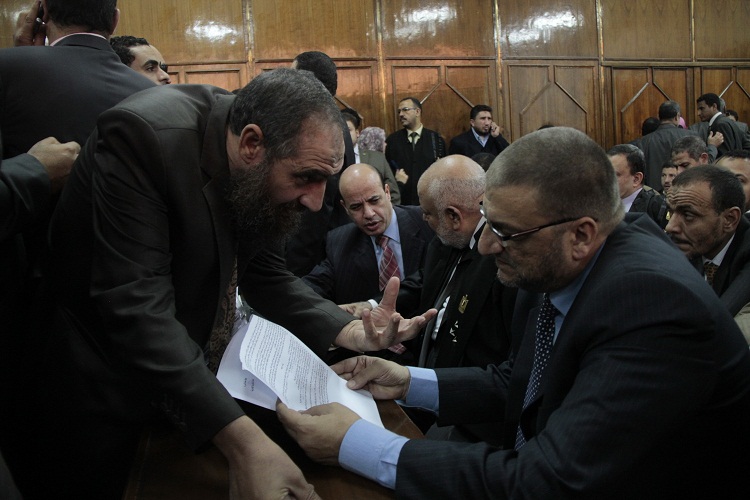CAIRO: The editor of Al-Dostour daily independent newspaper Ibrahim Eissa was ordered put on trial over his paper s recent reports questioning the health of 79-year-old President Hosni Mubarak, the state news agency reported Tuesday.
Eissa, an outspoken critic of Mubarak, was questioned for seven hours by authorities last week for printing the rumors.
He was released without bail, but the general prosecutor decided Tuesday to send the case to trial, the Mena news agency reported. Eissa is charged with disturbing the peace and harming national economic interests, his lawyer Nasser Amin said.
The state is considering me its enemy, Eissa, 41, told AP Tuesday. All the accusations are nonsense.
They are using me to scare journalists and critics from criticizing Mubarak personally or from talking about the possibility of his son inheriting power, said Eissa.
For several weeks in August, several opposition and independent newspapers published stories speculating that Mubarak s health was poor. The president, who has ruled Egypt for more than a quarter century, has no designated successor, but many believe his son Gamal is being groomed for power, a prospect that has raised widespread opposition.
Al-Dostour carried front-page stories for several days, including one that contended Mubarak sometimes lapses into comas.
Mubarak and state-run media did not comment or deny the rumors for weeks, until finally the president appeared in photos and gave an interview to state-run media.
Last week, First Lady Suzanne Mubarak said in a rare television appearance that her husband is healthy and said journalists who published reports contending he was ailing deserve to be punished.
Eissa s trial was set to begin Oct. 1. He could face up to three years in prison if convicted, Amin said.
Mena said that, according to Egypt s Central Bank, the rumors prompted the withdrawal of foreign investments worth more than $350 million in the two days of publishing these rumors.
Eissa told AP in an interview last week that he fears he will be thrown in jail and his newspaper shut down.
Al-Dostour previously was closed in 1998 for seven years by the government, after it published a statement by an Islamist group that threatened Coptic Christian businessmen in Egypt.
The paper is sharply critical of the government and often breaks political, social and religious taboos in its commentaries on Egyptian society. Its sharp language earned the ire of censors and its copies were confiscated three times in the 1990s.
In 2006, Eissa was sentenced to a year in prison for libeling Mubarak, but an appeals court reduced the sentence to a $4,000 fine.
The paper also features extensive coverage of the Muslim Brotherhood, which is the most powerful opposition movement, though it is officially banned.
In his interview with the government Al-Ahram newspaper that aimed to quell the health rumors, Mubarak accused illegitimate movements of being behind the rumors – a reference to the Brotherhood. The group s leader, Mohammed Mahdi Akef, denied the allegation.
The Egyptian Organization for Human Rights expressed its deep concern about the plan to try Eissa. It called on the canceling of provisions allowing prison sentences for crimes connected to the press. Associated Press
